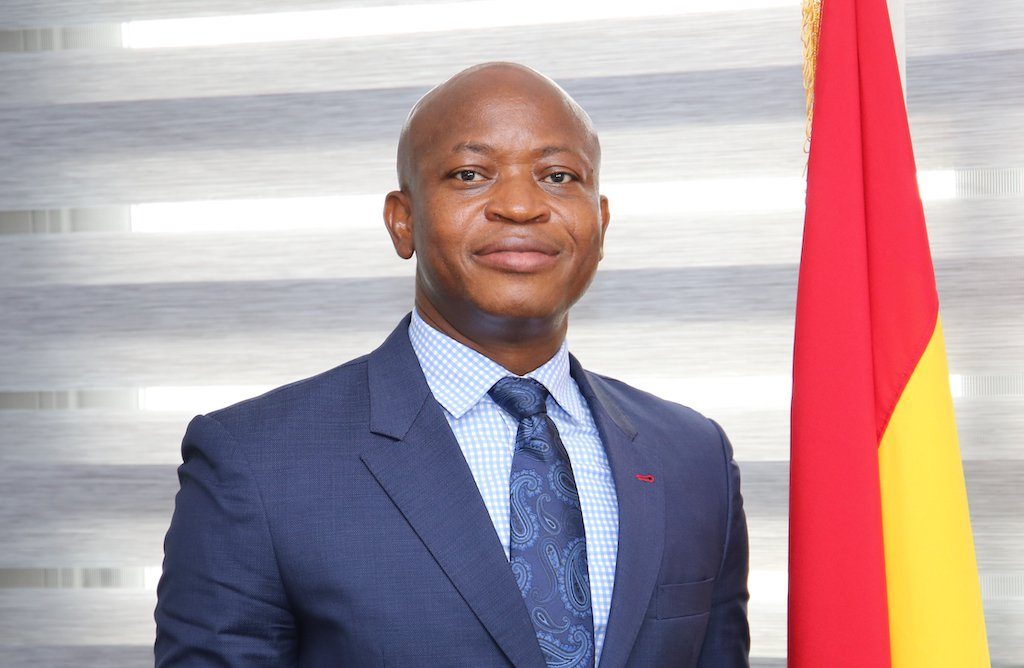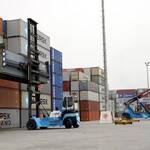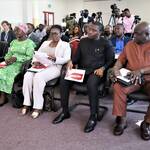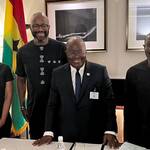Government, through the Ghana Ports and Harbours Authority (GPHA) has invited prospective partners to formally express interest in any aspect (or a combination of aspects) of the Keta Port Project.
This is in a bid to create a fair and competitive opportunity for all potential and interested parties who desire to be a part of the Port of Keta development agenda.
Accra-Lomé railways and roads
GPHA emphasised that the new port’s feasibility is dependent on the development of other port-supporting transportation infrastructure such as railways, roads and highways, particularly the Accra-Lomé and other major routes to the nearest regional capitals.
Master Planning and Feasibility Studies completed
In a request for expression of interest published in the media, GPHA said it has completed the first general Master Planning and Feasibility Studies exercise to validate the site selection process.
Estimated cargo projections calculated
It has also calculated the estimated cargo projections, preliminary socio-economic impact, and potentials for the development of the port, maritime, special economic zones, and port-city clusters relevant to the realization of the Port of Keta Development project.
First-level investment strategy review completed
Also completed is a first-level investment strategy review, considering the basic feasibility indicators within the enclave that should be tweaked to enhance the Project.
Public Private Partnerships
GPHA through its Directorate of the Port of Keta has registered the Project with the Government of Ghana (GoG’s) Public Private Partnerships (PPP) plan under the supervision of the Ministry of Finance.
Major business clusters expected
When completed, the Keta Port Project is expected to create the enabling environment for the development of major business clusters such as terminals (multipurpose, containers, iron ore / dry bulk ore, salts, cruise/passengers/recreation, petroleum bulk, etc.) special economic zones (factories, transit and transshipment storage, value addition services, etc.), maintenance services (shipyards, dry docking, and bunkering) and other services (city development, hospitality, recreational, inter-cultural, etc.).
GPHA in its notice expressed willingness to engage with potential investors, partners who can demonstrate proof of their relevant experience and capability to provide funding and guarantee at least three of the following components:
Capability to fund and construct the main port infrastructure
Capability to fund and construct the main port infrastructure (dredging, land reclamation, quay walls, relevant cargo terminals, supporting administrative facilities and internal roads, etc.) as well as equip and operate the terminals, based on business models in the likeness of project-financed Build, Operate and Transfer (BOT), or similar structures.
Funding of hinterland access roads and highways
Prospective partners must be able to fund the construction and operations of hinterland access roads and highways linking the port to the major trunk road networks, cities, and related public utility infrastructure.
Ability to attract anchor industries
The applicants must also be able to attract anchor industries to establish factories within the Keta area and or nearby regions and generate import and export cargo to feed the port.
Ability to attract partner shipping lines
The partners must also have the ability to attract partner shipping line(s) that will use Keta Port as one of their hubs to provide some guaranteed vessel and cargo traffic through the port.
Funding shipyards, maintenance yards, oil, and gas services enclaves
Bidders must also have the capacity to fund, develop, and operate special services facilities such as shipyards, maintenance yards, oil, and gas services enclaves, etc.
Case-by-case basis engagements
The GPHA will receive expressions of interest and will take time to engage the applicants on a case-by-case basis towards clustering the business interests, recognizing synergies, and coordinating the potential development interests.
Extensive due diligence
It will also exercise the right to conduct extensive due diligence to seek to verify any or all claims in any of the submissions.
- Church of Jesus Christ, Ga Mantse Foundation renovate Adabraka School - 27 June 2024
- Manufacturers, Trade Minister tussle over proposed cement price regulation - 26 June 2024
- Work begins on Nima-Paloma drains - 26 June 2024




